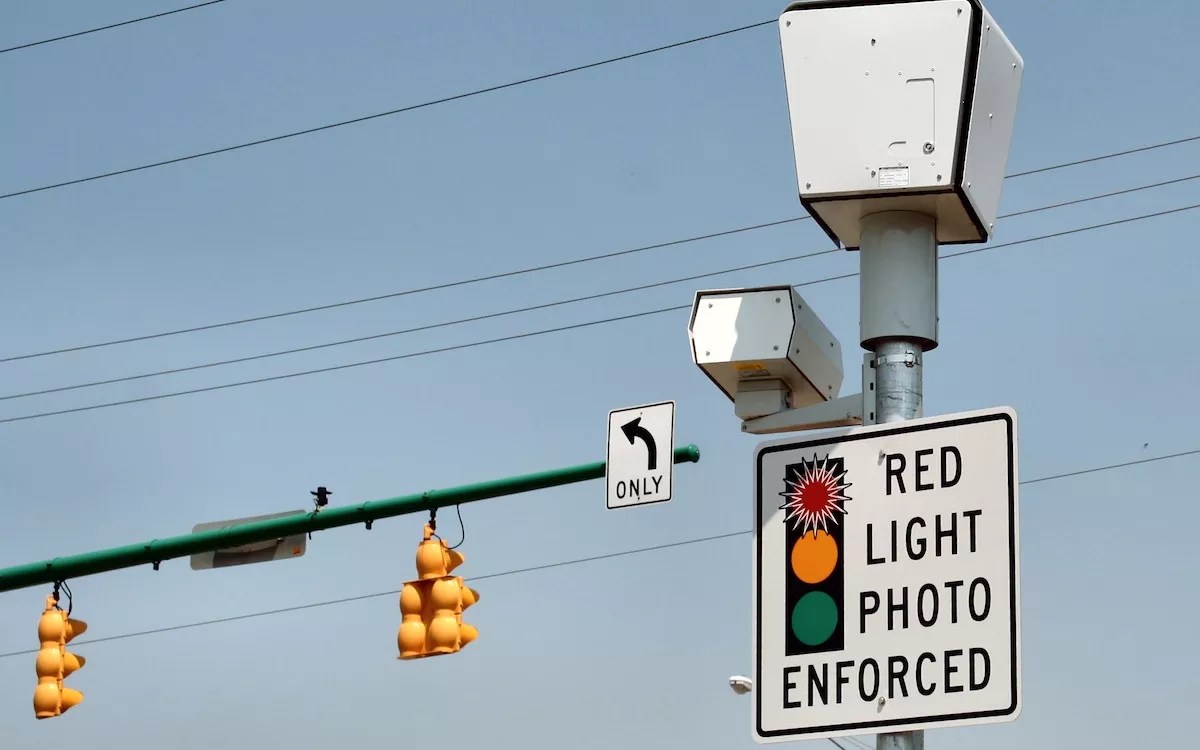
Photo by Derek Jensen / Wikimedia Commons

Audio By Carbonatix
The days of Sunny Isles Beach drivers blowing through red lights may soon be over – or so officials hope.
The municipality is one of the latest to announce plans to install controversial traffic cameras at its busiest intersections in an effort to stop drivers from zooming through red lights. Through a recent contract with RedSpeed Florida LLC, a subsidiary of the Illinois-based traffic enforcement company RedSpeed USA, the oceanfront city plans to install six red-light enforcement cameras at the following intersections:
– 183rd Street and Collins Avenue northbound
– 183rd Street and Collins Avenue southbound
– 200 block of Sunny Isles Beach Boulevard
– 159th Street and Collins Avenue northbound
– 159th Street and Collins Avenue southbound
– 193rd Street and Collins Avenue southbound
While the red-light program costs $889,200 for a roughly three-year term, the contract (which piggybacks on the city of Sarasota’s, waiving the competitive bidding process) allows the city to back out during the first year without financial liability.
The monthly fees for six to ten cameras, the amount Sunny Isles Beach plans to install, is roughly $3,800, according to a city memorandum about the contract. (So, if the city installs six cameras for a year, the fees would amount to $45,600.)
According to RedSpeed’s website, its products include speed-enforcement cameras, red-light cameras, school-bus cameras, and railroad-crossing cameras. The company’s red light photo-enforcement system features dual red light and speed enforcement cameras, a license plate “rewind” function, and real-time license plate recognition, among others.
Red-light cameras have long remained a hot-button issue.
While cities across America have installed red-light cameras over the past two decades in an effort to make roads safer, some studies have shown that they haven’t achieved that goal – and, in certain cases, have made roads more dangerous.
Between the study results and accusations of officials treating the system like a “business” (you might recall the city of Sweetwater, whose six red-light cameras raked in $2.5 million between 2018 and 2019), a number of Florida jurisdictions have done away with the cameras in recent years.
In 2016, the Miami-Dade County Commission voted to rescind the county’s power to install cameras in unincorporated areas – places such as Kendall, Westchester, and Brownsville. In late 2017, the City of Miami got rid of its red-light cameras after the public started to question whether officials deployed them for safety or simply to line the city’s coffers. (The city was slated to rake in $10.5 million in red-light camera citations that fiscal year alone.)
After installing red-light cameras at four of its busiest intersections in 2017, the City of Doral got rid of them in June 2023 after learning of the high crash rate at those crossings.
“A lot of the drivers…before they were passing these intersections, they were scared every time they get the yellow light,” Pineiro said, explaining that drivers would stop suddenly, causing rear-end collisions.
In December 2023, two Republican lawmakers – Florida Sen. Ileana Garcia of Miami and Florida Rep. David Borrero of Sweetwater – filed proposed constitutional amendments that would ban the use of red-light cameras. Their effort follows an annual trend of lawmakers attempting to repeal a 2010 law, the Mark Wandall Traffic Safety Program, which authorized the use of red-light cameras throughout Florida. The law is named after a man killed by a motorist who ran a red light.
During a recent city commission meeting, in which commissioners discussed the cameras, Sunny Isles Beach officials emphasized that money isn’t their motive.
Commissioner Jeniffer Viscarra says that if the city can’t put a police officer on “every corner 24 hours a day,” this is the next best way for the city to enforce its roads at all hours.
“This is not about making money,” Viscarra says. “This is about changing behavior.”